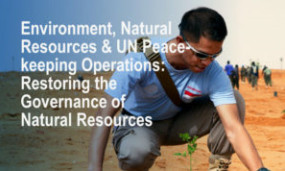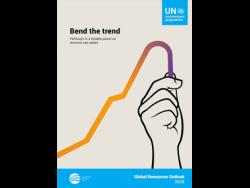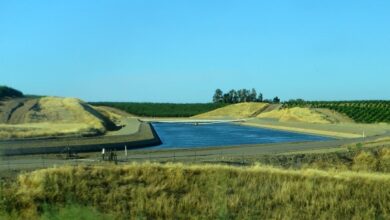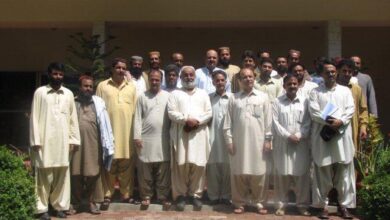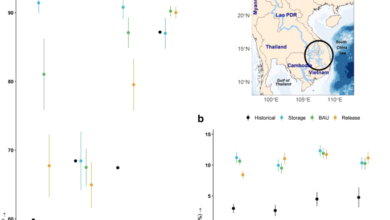Mineral Resource Governance and the Role of Geneva – Geneva Environment Network
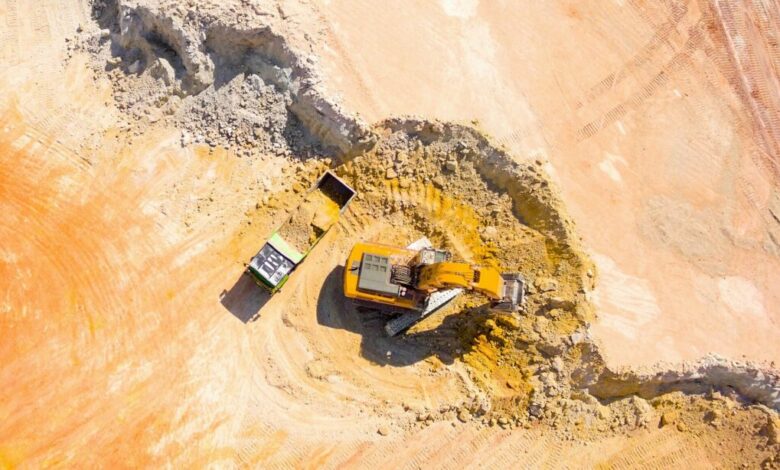
Mineral Resource Governance and the Environment
Minerals and metals play a central role in the global economy, as they provide the raw materials we need for industrial processes and daily use. Despite enormous efforts to decouple economies from resource use, the extraction of mineral resources has increased markedly in recent decades and, over the last decade, at a faster rate than economic growth. This trend is forecasted to steadily increase in the future, as we struggle to meet the mineral resource needs of a growing global population that is expected to reach 8.5 billion by 2030, 9.8 billion by 2050 and 11.2 billion by the end of the century.
The topic of sustainable management of minerals has never been so high on the global political environment agenda and the reason is that minerals are essential for the future. The energy transition, infrastructure and digitalization processes, among others, represent greener solutions. However, unsustainable extraction, manufacturing, use and disposal of resources is having important detrimental impacts on people and the planet. With an expected 500 per cent increase in the demand for minerals, environmental challenges are going to be even more acute.
Global Governance of Mineral Resources
UN Environment Assembly
Unsustainable extraction, manufacturing, use and disposal of resources is having important detrimental impacts on people and the planet. At the 5th UN Environment Assembly concluded on 2 March 2022 in Nairobi, delegates discussed this important issue and adopted a resolution on the Environmental aspects of minerals and metals management (UNEP/EA.5/Res.12). Building on the UNEA-4 resolution on the matter, Member States stressed the “need for enhanced action to support the environmental sustainability management of minerals and metals” along their full lifecycle. The resolution requests the convening of intergovernmental regional consultations, followed by a global intergovernmental meeting, to develop proposals to enhance the environmental sustainability of minerals and metals along their full life cycle, to be held in Geneva, where many organizations are actively working on issues related to resources governance.
The United Nations Environment Assembly requests the Executive Director, subject to available resources, to convene transparent and inclusive intergovernmental regional consultations, including with relevant international organizations, with regional and multilateral environmental agreements, and with relevant stakeholders acting as observers, to feed into a global intergovernmental meeting, with the aim of developing non-prescriptive proposals to enhance the environmental sustainability of minerals and metals along their full life cycle, in line with the 2030 Agenda for Sustainable Development;
Global Intergovernmental Meeting on Minerals and Metals
The Global Intergovernmental Meeting on Minerals and Metals took place on 7 and 8 September 2023 in Geneva, back-to-back with the 2023 edition of the World Resources Forum.
The global meeting highlighted the key findings of the regional consultations and provided an opportunity to gather additional feedback to potentially inform a co-chairs’ summary of outcomes. Participants were also be able to provide written input to the consultations prior to and after the consultations.
Briefing on the Implementation of UNEA Resolution 5/12 on Environmental Aspects of Minerals and Metals Management
A Geneva briefing, held a few months ahead of the first intergovernmental regional consultation, provided updates on the implementation plan for the implementation of UNEA Resolution 5/12 on Environmental Aspects of Minerals and Metals Management. and stakeholders’ mobilization in the process.
This session, convened with the co-chairs intergovernmental regional consultations on minerals and metals management in the framework of the Geneva Environment Network, took place on 28 February.
Briefing on the Global Intergovernmental Meeting on Minerals and Metals
A second Geneva briefing on the global intergovernmental meeting, organized in collaboration with the co-chairs of this process within the framework of the Geneva Environment Network, provided updates on preparations and the way forward. The event was held two weeks ahead of the intergovernmental meeting, on Wednesday 23 August 2023.
Challenges and Opportunities of Mineral Resource Governance
The growing demand for metals and minerals presents notable opportunities for resource-rich developing countries to harness their extractive wealth to advance economic development and human well-being. As such, the minerals and metals industry also has the potential to successfully support countries in achieving the Sustainable Development Goals. In many cases, however, extractive activities in these countries has not not translated into broad-based economic, human and social development. Furthermore, current resource management practices often lead to environmental degradation. Therefore, planning for a post-mining economy that considers social development and community satisfaction with quality of life must remain an essential goal of improved governance in the sector.
In the report Mineral Resource Governance in the 21st Century: Gearing Extractive Industries Towards Sustainable Development (2020), the International Resource Panel and the UN Environment Programme assesses governance gaps in the extractive sector and provides suggestions on how to improve the economic performance of the extractive sector while ensuring that it complies with the highest social and environmental standards at national and international levels. The report provides guidance on how the extractive sector can establish a modern governance structure which addresses resource security and efficiency—an area of particular interest to developed nations—and satisfies the demand for continuous structural transformation, economic development and diversification in resource-exporting, developing countries.
Environmental and Social Impact of Mining
Unsustainable production and consumption systems powered by relentless extraction of natural resources have been driving the inter-linked planetary crises of climate change, biodiversity loss and pollution. According the World Resources Forum, resource extraction and processing are responsible for over 80% of biodiversity loss and water stress, and for 50% of carbon emissions globally. And global material resource use is expected to more than double from 2015 to 2050.
Following is a list of impacts relating to the extractive sector provided by the IRP/UNEP report.
Recommended National and International Measures
Understanding the necessity for broader actions, the IRP/UNEP report contains a list of key recommendations for implementation at both national and international levels. The International Resource Panel strongly believes that effective work at national level with broad and inclusive involvement of all stakeholders including “host and home” country governments, the international community, mining companies and civil society organizations should lead to the adoption of a strategic development plan. The plan must contain targeted actions for the Sustainable Development Goals and define performance standards.
In order to facilitate its implementation, the International Resource Panel suggests including mining laws and regulations in the plan, which enshrine the principles of consultation, transparency and reporting as well as recognize and promote the rights of local populations. Failure to govern mineral resources is primarily political and behavioural in nature, related to governance and human failures to create institutional arrangements that support coordinated actions locally, nationally and internationally. Read more about key recommendations below.

Coal industry, South Africa. Photo: Jassen Todorov © Getty images
Critical Minerals and Resource Governance: The Transition to Sustainable Energy
In the face of the climate crisis, the transition towards a low-carbon future through clean and renewable energy places critical minerals, such as cobalt, copper, lithium, nickel, and rare earths, at the forefront not only of the global environmental agenda but as well as that of mineral resource governance.
The energy supply sector is the largest contributor to global greenhouse gas emissions. Around 80% of global energy and 66% of electrical generation are supplied from fossil fuels, contributing to approximately 60% of the greenhouse gas (GHG) emissions responsible for climate change. A transition to cleaner forms of energy has already begun in many countries, but despite the recent fast rate of technological innovation and cost reduction, renewable energy and energy efficiency technologies must still compete with highly subsidized carbon-intensive energy technologies.
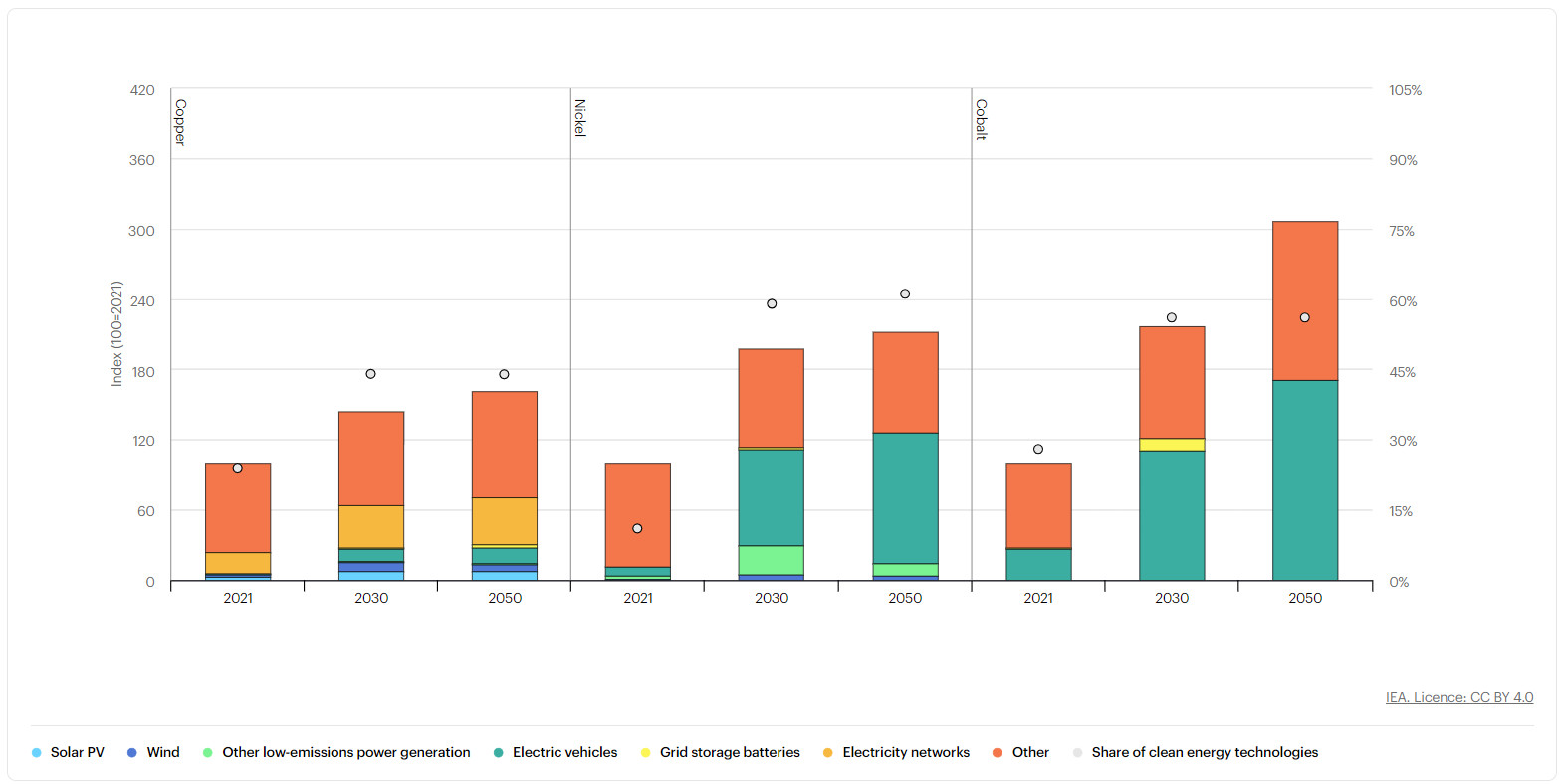
Total demand for selected minerals by end use in the Net Zero Scenario, 2021-2050, IEA, Paris. Data as of 19 January 2024. License: CC BY 4.0
Due to the crucial role that they play in the production of clean energy technologies, they have become increasingly in demand, as annual trade in energy-related critical minerals has already increased from US$ 53 billion to US$ 378 billion over the past 20 years. The IEA has also projected that consumption of these minerals could increase by at least sixfold by 2050 if we were to achieve net-zero by mid-century.
With this growing need, however, comes increasing pressure on supply chains, particularly in developing countries that hold large reserves of these minerals. African countries, for example, have about 25 percent of global reserves, including 19 percent of those needed for EVs. Many developing countries are already playing a vital role in supplying world markets, such as the Democratic Republic of the Congo, from where 68 percent of cobalt imports originate, Chile, a significant lithium exporter, and Indonesia, which accounts for 48 percent of nickel exports (UNCTAD 2023).
Intergenerational Equity and Critical Minerals Governance
Critical minerals are essential for the energy transition as are intergenerational equity in resource management and the engagement of youth. In this light, the Resource Management Young Member Group (RMYMG) of the UNECE Expert Group on Resource Management published “Critical Minerals for the Sustainable Energy Transition: A Guidebook to Support Intergenerational Action”, which was launched during the UNECE Resource Management Week 2024. Emphasizing the urgency of integrating sustainable practices in the mining and management of critical minerals, this guidebook serves as a crucial tool to aid policymakers, industry leaders, researchers, and civil society to navigate the complex landscape of mineral resources crucial for the global shift toward renewable energy technologies.
Working Group on Transforming the Extractive Industries for Sustainable Development
In 2022, the UN Secretary-General created a Working Group on UN Framework on Just Transitions for Critical Energy Transition Minerals for a more collaborative and impactful service delivery offered in this space. An outcome of five Regional Roundtables and a Global Roundtable on Extractive Industries held in 2020 and 2021, (see the Policy Brief), the Working Group aims to
- Coordinate extractives-related work across the UN and beyond through joint work, planning and collaboration.
- Serve as an information and knowledge hub to scale up and replicate best practices and build synergies with existing initiatives.
- Provide policy advice and technical assistance to stakeholders in the extractives sector.
- Assist in integrating work on the extractive industries into other UN-wide initiatives such as the Financing for Development Initiative (FfDI).
As the success of the transition from fossil fuels to renewable energy sources will heavily depend on the availability and accessibility of critical energy transition minerals, the Secretary-General’s Working Group and its partners, in consultation with member states, experts, civil society organizations, and other stakeholders is developing the UN Framework on Just Transitions for Critical Energy Transition Minerals.
UN Secretary-General’s Panel on Critical Energy Transition Minerals
The UN Secretary-General launched on 26 April 2024 an initiative focusing on ensuring fairness, sustainability, and respect for human rights throughout the entire process of sourcing and using critical minerals needed for the clean energy transition.
The UN Secretary-General’s Panel on Critical Energy Transition Minerals builds on existing standards and initiatives, such as the Working Group on Transforming the Extractive Industries for Sustainable Development and its flagship initiative ‘Harnessing Critical Energy Transition Minerals for Sustainable Development’ to strengthen and consolidate existing efforts. Co-chaired by H.E. Ambassador Nozipho Joyce Mxakato-Diseko of South Africa and Ditte Juul Jørgensen, Director-General for Energy of the European Commission, the Panel brings together governments, intergovernmental and international organizations, industry and civil society, to develop a set of common and voluntary principles to build trust, guide the transition and accelerate the race to renewables. The Panel is supported by a technical secretariat led by the UN Secretary-General’s Climate Action Team, UNEP and UNCTAD, and includes various UN system entities. → Read the press release, the UN Secretary-General’s remarks on the launch of the Panel on 26 April 2024, and UN News story.
Transition Towards Sustainable Energy
In the face of environmental, social, economic, geopolitical, trade, and partnership challenges and opportunities, harnessing the potential of critical energy transition minerals will require putting the necessary social and environmental safeguards in place, while ensuring inclusive spaces for engagement, including Indigenous Peoples and local communities. Learn how actors in International Geneva are taking action toward a transition to sustainable energy for a cleaner future.
Key Actors for Resources Governance
At the global level, the International Resource Panel (IRP), based in Paris, and the World Resources Forum (WRF), based in St-Gallen, lead the work on issues of mineral resources governance.
International Resource Panel
The IRP was launched by the UN Environment Programme (UNEP) in 2007 to build and share the knowledge needed to improve our use of resources worldwide. The panel provides advice and connections between policymakers, industry and the community on ways to improve global and local resource management. It includes scientists and governments from both developed and developing regions, civil society, industrial and international organizations.
World Resources Forum
The WRF is an international non-profit organisation which aims to mobilize action to promote sustainability and fairness in the global use of natural resources. Through various projects, mainly in the global South, its work focuses on resource extraction, circularity and recovery. WRF hosts a yearly multi-stakeholder conference to build knowledge and support for collaborative action on sustainable resources management. It acts as an interactive platform for sharing and discussing the latest research, policies and practices in the field. Several editions were held in Geneva. The latest conference, World Resources Forum 2024, took place in Geneva on 4-6 September 2023, under the theme “Rethinking Value — Resources for Planetary Wellbeing”.
The Role of Geneva
Organizations are listed in alphabetical order.
Aarhus Convention
The Aarhus Convention on access to information, public participation and access to justice in environmental matters, hosted by UNECE, is also devoting a part of its work on the protection of environmental defenders. The Aarhus Convention grants the public broad and concrete rights of participation in decision-making and imposes obligations regarding access to information on parties and public authorities.
Basel, Rotterdam and Stockholm Conventions
The Basel Convention on the Control of Transboundary Movements of Hazardous Wastes and their Disposal aims to protect human health and the environment against the adverse effects of hazardous waste. Since 2023, it addresses e-waste issues. It categorizes e-waste as hazardous or non-hazardous waste depending on the presence of toxic materials such as mercury, lead or brominated flame retardants. As e-waste may also contain precious metals such as gold, copper and nickel and rare materials of strategic value such as indium and palladium, the Basel Convention works to ensure their recovery, recyclying and use as valuable source of secondary raw materials. At the fourteenth meeting of the Conference of the Parties to the Basel Convention in 2019, the Parties decided to establish a new partnership as a follow-up to Partnership for Action on Computing Equipment, launching Partnership for Action on Challenges relating to E-waste (PACE II) which addresses on mobile phones, computing equipment, TV screens including LEDs, LCD, CRTs screens, audio and video equipment and refrigerators, cooling and heating equipment.
Geneva Graduate Institute (IHEID)
The Geneva Graduate Institute addresses resource governance through research and projects carried out by its multiple research centers. These include assessing resources from environmental, sustainability, anthropological, governance, conflict, and peace perspectives. The Geneva Graduate Institute also hosts important conferences as the May 2023 one on Deep Seabed Mining and the International Seabed Authority.
Green Growth Knowledge Partnership | GGKP
In its resolution on Mineral Resource Governance (UNEP/EA.4/L.19), the United Nations Environment Assembly asked United Nations Environment Programme (UNEP) to collect information on sustainable practices, identify knowledge gaps and options for implementation strategies, and undertake an overview of existing assessments of different governance initiatives and approaches relating to sustainable management of metal and mineral resources, including emerging issues linked to sustainable management of sand resources and of mine tailings.
Intergovernmental Forum on Mining, Minerals, Metals and Sustainable Development | IGF
The Intergovernmental Forum on Mining, Minerals, Metals and Sustainable Development (IGF) is a voluntary initiative that provides opportunities for national governments with an interest in mining to work collectively to advance the priorities identified in the Johannesburg Plan of Implementation and—more recently—the UN’s Sustainable Development Goals (SDGs) and Agenda 2030.
The IGF 2024 is convened for the 20th IGF Annual General Meeting from 18 to 20 November at the Palais des Nations in Geneva, hosted by UN Trade and Development. This year’s theme is Redefining Mining: Balancing the Need for Minerals with Protecting People and the Planet. in Geneva and hosted by UNCTAD.
International Institute for Sustainable Development | IISD
The mining sector is one of the areas of focus for the International Institute for Sustainable Development (IISD). Since 2015, the institute has hosted the Secretariat to the Intergovernmental Forum on Mining, Minerals, Metals and Sustainable Development (IGF) with more than 75 member nations committed to leveraging mining for sustainable development to ensure that negative impacts are limited and financial benefits are shared (see above). IISD has also been deeply involved in the development of a Model Mining Development Agreement (MMDA) with the International Bar Association’s (IBA) Mining Law Committee.
International Labour Organization | ILO
The only tripartite U.N. agency, since 1919 the International Labour Organization (ILO) brings together governments, employers and workers of 187 member States, to set labour standards, develop policies and devise programmes promoting decent work for all women and men.
ILO recognizes the need for further action and its strategy seeks in to further intensify dissemination of Convention 169, including by promoting dialogue among the key stakeholders, sharing experience of good practices and training. ILO also recognizes that indigenous and tribal women face discrimination on multiple grounds, both outside and within their communities. ILO will seek to develop interventions to address the specific barriers and challenges faced by them.
International Organization for Standardization | ISO
The International Organization for Standardization (ISO) is one of the largest organisation developing standards and is committed to improving resource efficiency and promote the development of a circular economy based on the optimal use of resources. ISO provides a series of voluntary standards for the mining sector. The ISO Technical Committee on mining provides expert insights for the standardization of various practices related to extractive activities, including for reducing the environmental impacts associated with the cessation of mining activities.
International Telecommunication Union | ITU
As part of its commitment to a sustainable future, ITU promotes the creation of a circular economy for electronics and greening digital transformation, and participates in various activities addressing the urgent global issue of E-waste.
International Union for Nature Conservation | IUCN
IUCN launched the initiative, Natural Resource Governance Framework (NRGF), created for the purpose of providing a robust, inclusive, and credible approach to assessing and strengthening natural resource governance, at multiple levels and in diverse contexts. The overarching goal of NRGF is to: set standards and guidance for decision-makers at all levels to make better and more just decisions on the use of natural resources and the distribution of nature’s benefits, following good governance principles, such that improved governance will enhance the contributions of ecosystems and biodiversity to equity and sustainability.
At the IUCN World Conservation Congress in Marseille (September 2021), IUCN Members adopted Resolution 122 to protect deep-ocean ecosystems and biodiversity through a moratorium on deep-sea mining unless and until a number of conditions are met.
Minamata Convention on Mercury
The Minamata Convention on Mercury is a global treaty to protect human health and the environment from the adverse effects of mercury, addressing the ubiquitous metal throughout its life cycle from its mining to its management as waste. From a ban on new mercury mines, the phase-out of existing ones, the phase-out and phase-down of mercury use in a number of products and processes, control measures on emissions to air and on releases to land and water, the Convention also addresses the regulation of the informal sector of artisanal and small-scale gold mining.
UN Trade and Development | UNCTAD
UNCTAD‘s work on trade of critical minerals addresses current and projected trends in critical minerals’ demand and supply as well as social, economic, and environmental impacts of the exploitation of these minerals and offer policy recommendations to facilitate sustainable exploitation, enhanced trade diversification, and domestic resource mobilization for structural transformation to achieve the SDGs. UNCTAD has been active on the topic since 2009 with the Natural Resources Information Exchange (NRIE) initiative, which aimed to create a repository of digital information, focusing on geoscientific historical data. The initiative is currently being revamped to strengthen the capacity of countries to manage their wealth of data.
United Nations Economic Commission for Europe | UNECE
UNECE helps strengthen sustainable resource management in Europe with the United Nations Framework Classification for Resources. Over the course of 2022, a series of high-level international conferences have provided opportunities to engage with stakeholders across government, industry and civil society to encourage sustainable resource management. Among key tools is the United Nations Framework Classification for Resources (UNFC), developed at UNECE, which is the first widely accepted and internationally-harmonized system for classifying, managing and reporting natural resources.
In addition, UNECE member States decided to extend UNFC by creating the UN Resource Management System (UNRMS) — a dynamic resource management system for sustainable development that can aid stakeholders in the incorporation of a circular economy wherever possible.
UNECE Convention on the Transboundary Effects of Industrial Accidents
The UNECE Industrial Accidents Convention is a legal instrument that helps countries strengthen their tailings safety and governance. Many guidance and materials and tools have been developed under the framework of the Convention and they are available for use by all UN Member States: TMF safety guidelines and good practices to support the practical implementation of these safety guidelines; the TMF Safety Methodology that countries could apply on the ground; policy documents such as the Roadmap and a Decision on strengthening mine tailing safety; and an online toolkit and training on tailing safety.
United Nations Environment Programme | UNEP
As the global authority that sets the environmental agenda, the UN Environment Programme (UNEP) provides important work on issues of mineral resources governance. The UN Environment Assembly has been addressing the issue at its 4th and 5th assemblies, adopting resolutions to further international cooperation for sustainable resources management.
In Geneva, the UNEP Resources and Market Branch is striving to decouple economic development from resource use and environmental degradation, while reaping the benefits of this transition to ensure inclusiveness and poverty eradication. Geneva also hosts the UNEP Europe Office which develops projects in the pan-European region, including on green economy and resource efficiency.
UNEP/GRID-Geneva
UNEP/GRID-Geneva is leading the Global Marine Sand Watch, a platform to help countries and stakeholders monitor dredging activities in near real-time towards the goal of capacity building, development of guidelines and best practices for sand extraction. GRID-Geneva was mandated by UNEA to “strengthen scientific, technical and policy knowledge with regard to sand, to support global policies and action regarding its environmentally sound extraction and use” (UNEP/EA.5/Res.12).
World Business Council for Sustainable Development | WBCSD
The World Business Council for Sustainable Development (WBCSD) brings together transformational organizations to form a global community that shifts the systems they work within towards a better future. One of WBCSD’s pathways Products & Materials undertakes a full lifecycle approach to help companies optimize resource use to meet society’s needs while allowing the systems that provide resources to regenerate.
World Intellectual Property Organization | WIPO
WIPO is the global forum for intellectual property (IP) services, policy, information and cooperation. WIPO published the report Global Challenges for Innovation in Mining Industries exploring relations between mining innovation and other macro-factors such as commodity prices, transport innovation and environmental policy.
World Economic Forum | WEF
Among the global issues covered by WEF is the “Perspectives on Responsible Natural Resource Management in Conflict-affected Countries” proving strategic analysis, trends and research on the topic.
World Trade Organization | WTO
As the global international organization dealing with the rules of trade between nations, the WTO is concerned with the trade policies of mineral resources and materials, including the rights and obligations of WTO members in relation to its trade. The WTO also provides analyses and research on the matter, including on the trade in natural resources (including mining) in the World Trade Report 2010, and on energy-related critical minerals.
World Wildlife Fund for Nature | WWF
As the world’s leading conservation organization, WWF works in nearly 100 countries to tackle the most pressing issues at the intersection of nature, people, and climate. As resource extraction is often the cause of species decline and biodiversity loss, WWF works actively to stop harming extractive activities. In particular, WWF is campaigning against deep seabed mining, a lucrative activity which could cause irreversible damage on delicately balanced deep ocean ecosystems. Read more →
WWF Switzerland
WWF Switzerland seeks to commit stakeholders from the watch and jewellery industry to finding innovative solutions to protect the environment, in particular forests, fresh water and wildlife that are currently threatened in several points of the sector’s supply chain. WWF also provided an assessment of the impact of gold mining and the role of Switzerland as a global gold hub.
Learning
